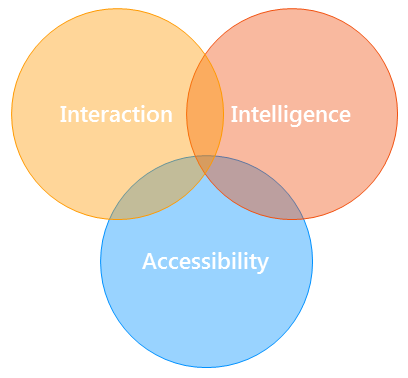e-Lite: Intelligent and Interactive Systems

The e-Lite research group develops and studies innovative technologies applied to interactive applications. The spirit of the research is the integration of complex systems, based on the interaction between humans and technology, in which the complexity gap is managed by intelligent software components.
The main research areas are on the crossing of Human-Computer Interaction, Ubiquitous Computing, and Artificial Intelligence.
Research activities of the e-Lite group focus on designing, building and evaluating interactive and intelligent systems, and testing them in realistic settings. Novel user interaction modalities, empowered by ubiquitous devices, enable the discovery of innovative methods to approach new and existing application domains. We adopt an end-to-end research approach, where we aim at exploring the whole spectrum, from devices to users, from intelligence to data representation, to develop a systemic approach.
Currently, the application area in which we are mostly active is Ambient Intelligence.
 Ambient Intelligence (AmI) aims at building a digital environment where people are surrounded by intelligent and intuitive interfaces embedded in all kinds of objects. The ultimate goal of such an environment is to support people in their daily lives in a proactive, yet sensible and unobtrusive, way.
Ambient Intelligence (AmI) aims at building a digital environment where people are surrounded by intelligent and intuitive interfaces embedded in all kinds of objects. The ultimate goal of such an environment is to support people in their daily lives in a proactive, yet sensible and unobtrusive, way.
In this wide area, we mainly focus on innovative interaction modalities for people and on the intelligent aspects (e.g., Semantic Web) of the environment, typically exploiting off-the-shelf devices and systems from the Internet of Things and Smart Home domains. We are also interested in understanding how to effectively support developers to build such systems.
Moreover, we deserve particular attention to the Ambient Assisted Living field, in which Accessibility and Assistive Technologies meets AmI. In this domain, we experiment with novel interaction modalities and systems for people with disabilities.









